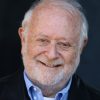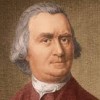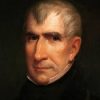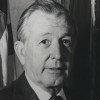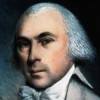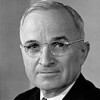For virtue, not secrecy, is sought by good men.
[Honesta enim bonis viris, non occulta quaeruntur.]
Marcus Tullius Cicero (106-43 BC) Roman orator, statesman, philosopher
De Officiis [On Duties; On Moral Duty; The Offices], Book 3, ch. 9 (3.9) / sec. 38 (44 BC) [tr. Edmonds (1865)]
(Source)
(Source (Latin)). Alternate translations:
For good men desire to be virtuous and honest, and not to be secret, that so they may sin without danger.
[tr. Cockman (1699)]
What is honorable, and not what is concealed, is the object of pursuit with wise men.
[tr. McCartney (1798)]
For it is right things, not hidden things, that are sought by good men.
[tr. Peabody (1883)]
The good man seeks to do what is right, not to hide what he does.
[tr. Gardiner (1899)]
For good men aim to secure not secrecy but the right.
[tr. Miller (1913)]
Good men seek right conduct, not conduct that has to remain concealed.
[tr. Edinger (1974)]
Honorable things, not secretive things, are sought by good men.
Quotations about:
transparency
Note not all quotations have been tagged, so Search may find additional quotes on this topic.
BERNARD: But surely the citizens of a democracy have a right to know.
SIR HUMPHREY: No. They have a right to be ignorant. Knowledge only means complicity in guilt; ignorance has a certain dignity.
Liberty cannot be preserved without a general knowledge among the people, who have a right, from the frame of their nature, to knowledge, as their great Creator, who does nothing in vain, has given them understandings, and a desire to know; but besides this, they have a right, an indisputable, unalienable, indefeasible, divine right to that most dreaded and envied kind of knowledge, I mean, of the characters and conduct of their rulers.
John Adams (1735-1826) American lawyer, Founding Father, statesman, US President (1797-1801)
A Dissertation on the Canon and Feudal Law (1765)
(Source)
Paraphrase: "The people have a right, an indisputable, unalienable, indefeasible, divine right to that most dreaded and envied kind of knowledge -- I mean of the character and conduct of their rulers."
If someone knows of a problem and conceals it from me, I get more upset from that than from the problem itself. I tell our people time and time again: Bad news first.
It will be of little avail to the people, that the laws are made by men of their own choice, if the laws be so voluminous that they cannot be read, or so incoherent that they cannot be understood; if they be repealed or revised before they are promulgated, or undergo such incessant changes that no man, who knows what the law is today, can guess what it will be tomorrow.
No President should fear public scrutiny of his program. For from that scrutiny comes understanding; and from that understanding comes support or opposition. And both are necessary.
John F. Kennedy (1917-1963) US President (1961-63)
Speech, American Newspaper Publishers Association (27 Apr 1961)
(Source)
The very word “secrecy” is repugnant in a free and open society; and we are as a people inherently and historically opposed to secret societies, to secret oaths and to secret proceedings. We decided long ago that the dangers of excessive and unwarranted concealment of pertinent facts far outweighed the dangers which are cited to justify it. Even today, there is little value in opposing the threat of a closed society by imitating its arbitrary restrictions. Even today, there is little value in insuring the survival of our nation if our traditions do not survive with it. And there is very grave danger that an announced need for increased security will be seized upon by those anxious to expand its meaning to the very limits of official censorship and concealment. That I do not intend to permit to the extent that it is in my control. And no official of my Administration, whether his rank is high or low, civilian or military, should interpret my words here tonight as an excuse to censor the news, to stifle dissent, to cover up our mistakes or to withhold from the press and the public the facts they deserve to know.
John F. Kennedy (1917-1963) US President (1961-63)
Speech, American Newspaper Publishers Association (27 Apr 1961)
(Source)
No government is perfect. One of the chief virtues of a democracy, however, is that its defects are always visible and under democratic processes can be pointed out and corrected.
Harry S Truman (1884-1972) US President (1945-1953)
Speech, Joint Session of the US Congress (12 Mar 1947)
(Source)
Govern thy Life and Thoughts, as if the whole World were to see the one, and read the other.
Thomas Fuller (1654-1734) English physician, preacher, aphorist, writer
Introductio ad Prudentiam, # 417 (1725)
(Source)
I believe that the public temper is such that the voters of the land are prepared to support the party which gives the best promise of administering the government in the honest, simple, and plain manner which is consistent with its character and purposes. They have learned that mystery and concealment in the management of their affairs cover tricks and betrayal. The statesmanship they require consists in honesty and frugality, a prompt response to the needs of the people as they arise, and a vigilant protection of all their varied interests.
Grover Cleveland (1837–1908) American President (1885–1889, 1893–1897)
Letter accepting Democratic nomination for President (8 Aug 1884)
(Source)


